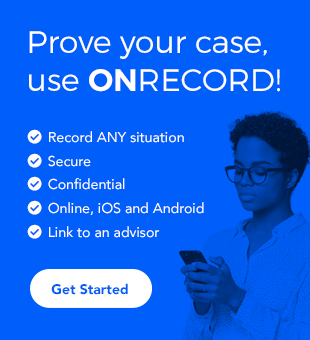At ONRECORD, we are big fans of online communication but we would be, wouldn’t we. We’re hoping it’s catching on as newbies learn how to conference and even to party online and that soon people will see the significant benefits of using ONRECORD to gather and organise evidence too.
The upside of working from home
No doubt being introduced to the experience of working remotely and conferencing online will make many people reluctant to get back into the grind of commuting to an office. There’s a lot to be said for remote working for convenience, economy and, to some extent efficiency. Online meetings, especially if everyone’s face has its own little window, are pretty intense with much less scope for social chat, goofing off or even grandstanding by the office show off. There’s none of the fun eye contact or body language gestures to connect with each other, relieve the tension and distract from the main task, and it’s a bit creepy for
 anyone to hang around after the meeting is over and most people have left, so as to socialise more privately. That kind of thing has to be done surreptitiously, off screen, under the table, using a separate chat platform. So noses are held pretty close to the grindstone and work gets done.
anyone to hang around after the meeting is over and most people have left, so as to socialise more privately. That kind of thing has to be done surreptitiously, off screen, under the table, using a separate chat platform. So noses are held pretty close to the grindstone and work gets done.
For much of the work that needs doing in a meeting, the online format is good enough. Everyone can participate, reviews are given, facts and views exchanged, tasks set, agreements made, next meeting dates go into the diary. What’s not to like? Just think of the travel costs and office rent that can be saved if this is how things can carry on.
But where’s the human chemistry?
There can be no doubt though that something is missing. We humans love to look at people’s faces and it can seem that most of the communication we need is located there, so a video screen might seem good enough but it certainly isn’t enough for anything important. We are always looking for more information than just what a person shows in their face. Just see how people try to interpret the background against which each video participant sets themselves. We want more. We want to see how they sit or stand, whether and how they move, how they have chosen to dress, how they are breathing, where their eyes are looking, do they make eye contact, what gestures they make, how they react to others in the room, how they react to us. We are always trying to calculate the interaction between us, to monitor whether and how much we are acknowledged, respected, valued, trusted, liked. We want to know whether we have reached a true shared understanding or not and whether an agreement is heartfelt or grudging. None of this can reliably be judged from a video screen.
Not enough information to make judgements
As a psychiatrist, I would never have relied on the impression I got from a video call if I had to make anything but the most trivial decision. I would have no confidence to tell, from a video call, what the diagnosis was, whether the patient had improved or not, whether or not they were suicidal, how severe side effects of medication were, whether or not they were concealing or fabricating information. As an expert witness in the family court, I repeatedly saw that judges depended on the impression they got of both litigants and witnesses as they watched them in the witness box and in the body of the court. However meagre the information a judge can glean from behaviour in court, crucial decisions were made based on how the litigants conducted themselves when much of what would have been on a video screen would either be impossible to interpret or would not even have been seen.
Trust is hard to earn
To really know people, you need to be able to observe how they are in a range of different circumstances, and not just hear what they say and see their face. Trust is essential in business and in personal life. No amount of legally binding contracts can be a substitute for trust and it’s essential that we know enough about the people with either a financial or a personal stake in our lives to feel trust in them. Video will never do it. It’s useful and a huge time saver but it will never replace the real thing. You have to meet in person and you have to meet in a range of differing circumstances to gain and earn that trust.
George Hibbert


